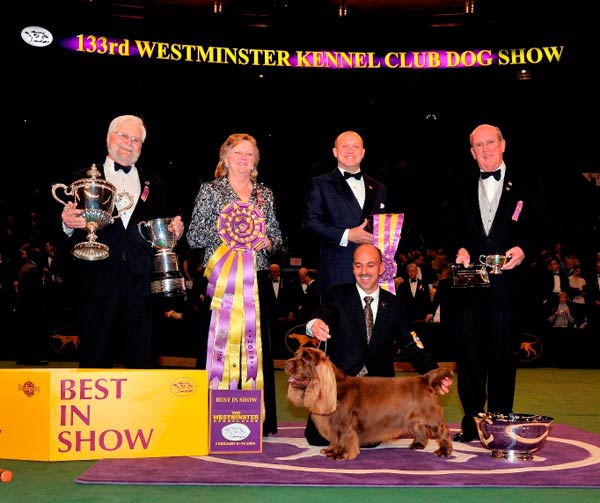Never Stop Learning.
One of my tips for being successful with your passion in the sport of purebred dogs is to never stop learning. Read the AKC standard for your breed and the other breeds in your group. Know what breed-specific characteristic are essential to define them. Know why they possess those traits and how they use them. I suggest you take a journal to a show and take notes of what you saw. Make lists of questions. Seek out answers and study the professionals. Don’t go into your passion with amateur skills. To be successful you will need to have professional skills. Practice grooming and handling techniques. Learn the best ways to raise your breed, ask how to train puppies to walk on a show lead. Practice till you master.
This is the only sport where amateurs compete on the same playing field as professionals. No other sport is like ours. You can’t buy a baseball and go out to a game and play against the New York Yankees, but you can go to a dog show and compete against the likes of Scott Sommer or Taffe McFadden, two of our top professional handlers in the sport today.
This uniquely orchestrated mix of players is created by our common interest in exhibiting purebred dogs.
Good Mentoring and Networking
Find other people who share your interests, either in your area or on the Internet that would be willing to offer good advice. Become involved with your local all breed club. Attend handling class and workshops on canine reproduction or anatomy. Create a network of responsible breeders, and find a veterinarian who can be involved along the way. Reputable breeders have years of experience and education. They are willing to share their knowledge and experience with an open ear.
Set goals and make every effort to obtain them. When I started breeding dog, I had the same goal as everyone: to win Best in Show at Westminster Kennel Club. Well, I have done that twice in two breeds. So my goals had to change. The more success you find, the higher the goals will be.
Challenges
Be aware of the legislative challenges facing our sport today. We can all make a difference in the general public’s perception of purebred-dog breeders. One way is by controlling our dog numbers. Maintaining a manageable number of dogs to care for is vital to a kennel’s success. One of the ways to focus our passion for breeding purebred dogs is to make the difficult decision to place an older dog.
This decision is generally more difficult for the breeder, but they know it is in the best interests of the animal. We place them in a life where they are in a home instead of a kennel, or where they become one of a few rather than one of several. This helps the breeder to maintain a manageable number of dogs in a breeding program at one time. This is a win-win situation for both adopted family and breeder. It is a gift that we, as responsible breeders, can give our dogs once they have produced puppies that will benefit the breed in general.
Another challenge to becoming a successful dog breeder is learning to be totally honest about the quality of dog you have. It is important to accurately evaluate your breeding stock.
I recall a time, years ago, when I went to our kennel and came back disappointed in the quality of dogs I had to work with. I was only focusing on where they were deficient and was not seeing the overall good quality.
The very next morning, I woke up and let the dogs out and reevaluated. They were better than I was giving them credit for! I had become my kennel’s harshest critic.
You cannot improve on your dogs if you cannot see their faults, but be sure to identify the great qualities of your breeding program as well as those less-desired points. Only then can you plan your matings to maximize the offspring’s full potential.
Teamwork
The world of dog breeding has seen it fair share of changes in the last 50 years. One of the most notable changes is the lack of large breeding kennels.
Today many people work in what we call satellite kennels. These are groups of people who share a passion for the same breed and the same traits in a breed, and who share the passion to move their breed forward. These groups work as a solid kennel unit. Their passion for a breed is then shared with the network.
This benefits a breed and the breeders by sharing the expense of keeping show animals, limiting the numbers of animals per household, and creating a network of like-minded individuals to help make breeding decisions. Together these satellite kennels, with their common passion and strong sense of direction, will take a breeding program to a higher level of success.
Those of us with a passion for companion animals know how rewarding our journey can be, but the long-term commitment to care for our pets can create unanticipated and problematic demands. The responsibility to be a caring owner starts the moment we decide to share our life with a companion animal. It begins with making the proper choices for our lifestyle and continues with our long-term commitment to provide a happy, healthy life full of passion for the sport.
—D.J.
2009: Sussex Spaniel Ch. Clussexx Three D Grinchy Glee (Stump) becomes the oldest dog, and the first of his breed, to win Westminster.
Doug Johnson has bred numerous Best in Show winners in two of the AKC’s rarer breeds, Clumber Spaniels and Sussex Spaniels. His Clussexx dogs earned him the Sporting Group crown in the 2005 AKC Breeder of the Year Award.


